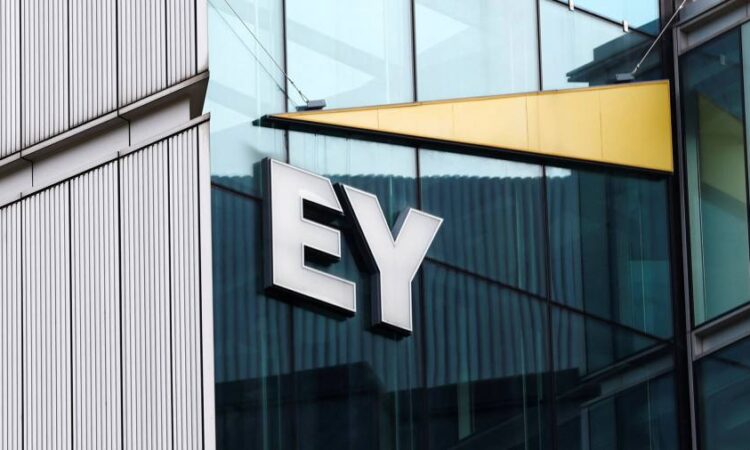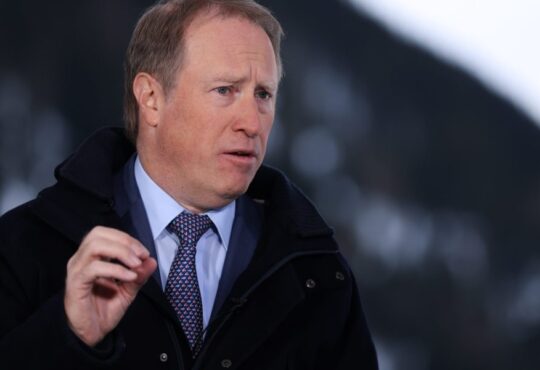
Receive free EY updates
We’ll send you a myFT Daily Digest email rounding up the latest EY news every morning.
UBS executives have chosen EY for one of the world’s most lucrative banking audit contracts after deciding to retain the Big Four firm following its takeover of Credit Suisse.
EY, which has been UBS’s external auditor since 1998, will audit the enlarged bank from 2024, according to people with knowledge of the decision. The size of the contract means EY will have to call in staff from other countries to work on the audit, two people said.
PwC, which had been Credit Suisse’s auditor, will audit the stricken bank’s accounts for 2023, according to people with knowledge of the matter.
UBS’s state-orchestrated takeover of Credit Suisse was completed last month but integrating the business into the wider group is expected to take several years.
The audits of UBS and Credit Suisse were already among the biggest in Europe on a standalone basis. Last year, UBS paid EY $70mn in fees, while Credit Suisse paid PwC $90mn — a 10 per cent rise on the year before — according to the banks’ annual reports.
The audit fee for the combined group is expected to be less than the sum of the standalone audits but would still be one of the highest in global banking.
HSBC paid its auditor PwC $148mn last year, more than any other bank in Europe, while Barclays paid KPMG £71mn. Wall Street trio Citigroup, JPMorgan Chase and Goldman Sachs each paid their auditors between $95mn and $103mn, according to Ideagen Audit Analytics data.
EY did not comment on whether it had been retained by UBS but said: “The size and scale of the global EY financial services audit practice means we are able to access resource and specialist skills from across our network.”
The firm has 20,000 banking audit staff globally and its international operations are more closely integrated than its rivals, making it easier to share resources across borders, according to one person familiar with the business. Auditor appointments are subject to shareholder approval.
EY has continued to win banking audits despite reputational damage stemming from its role in signing off the accounts of German fintech group Wirecard, which collapsed in a fraud scandal in 2020.
Last year EY won a share of the €60mn-a-year audit contract of France’s largest bank BNP Paribas, prompting senior partner Omar Ali to tell staff the firm was “now the clear market leader in financial services audit in Europe”.
EY already audits Deutsche Bank, Germany’s biggest lender, for which it was paid €68mn last year. But it has been barred from bidding for new audits of German-listed companies for two years after its failures at Wirecard.
PwC took over as Credit Suisse’s external auditor from KPMG in 2020. Its role was thrust into the spotlight this year when Credit Suisse was forced to delay the publication of its annual report after a last-minute query from the US Securities and Exchange Commission.
When the report was finally published, just days before Credit Suisse collapsed in March, it identified “material weaknesses” in the bank’s internal controls over financial reporting.
PwC said these were a result of the fact that “management did not design and maintain an effective risk assessment process to identify and analyse the risk of material mis-statements in its consolidated financial statements”.
The issue caused friction between senior Credit Suisse executives and PwC auditors, according to three people familiar with the matter.
Conflict of interest rules mean EY is likely to have to end its consulting work for Credit Suisse as it takes on the audit of the combined business.
Two years ago, Credit Suisse hired EY to review anti-money laundering procedures in its Asian wealth business following its involvement in several scandals in the region, including the Malaysian 1MDB embezzlement case.
Asked by the Financial Times about whether it had been asked to assess EY’s independence as auditor of the combined UBS-Credit Suisse group, the Swiss Federal Audit Oversight Authority said it could not comment because the matter was “under consideration”.
UBS, Credit Suisse and PwC declined to comment.






